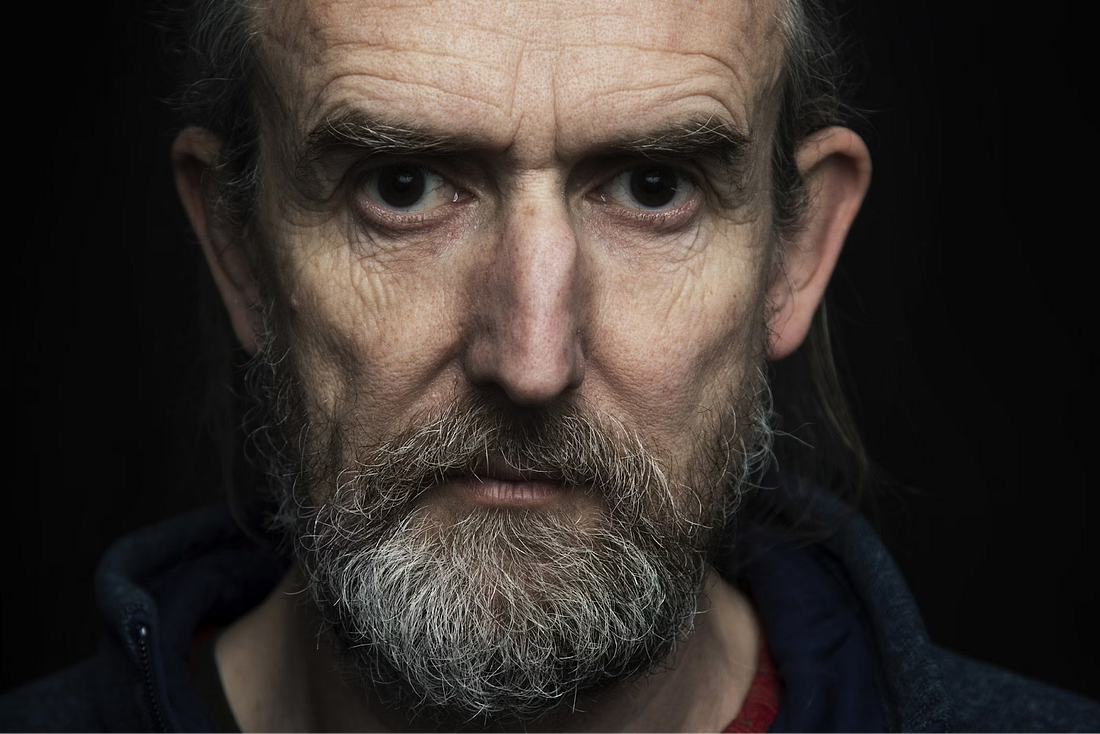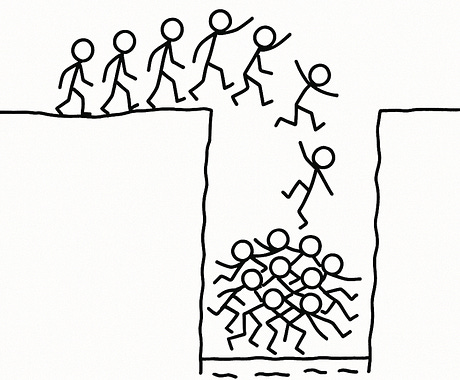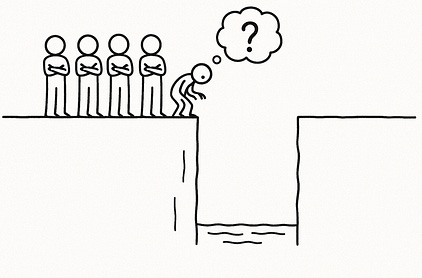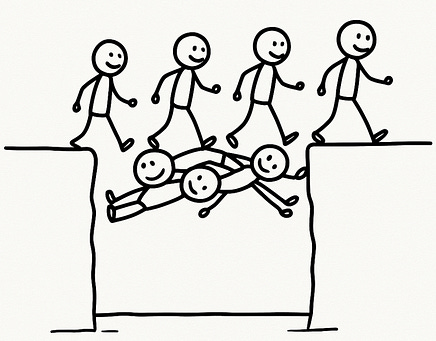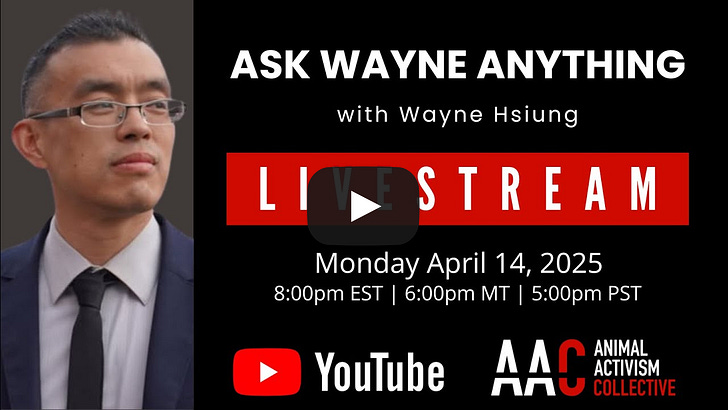|
Does Virtue Matter More than Impact?
The UK climate movement achieved a historic win. Roger Hallam doesn’t give a f---.
On March 5, 2025, the government of the United Kingdom made a startling announcement: it would stop the issuance of new oil and gas licenses for the first time in history. The remarkable victory, after years of pressure by the activist group Just Stop Oil (JSO), was a rare bright spot in a global climate movement that has mostly collapsed.
And it was achieved, in no small part, due to the efforts of Roger Hallam, co-founder of both JSO and another successful climate action network, Extinction Rebellion (XR). Roger is arguably the most successful activist in recent Western history. The mass arrests at XR’s April 2019 rebellion triggered global attention on the climate crisis, leading the UK government to declare a national climate emergency. And Roger has led activists in using controversial nonviolent direct action tactics to transform sectors of the UK economy. For those successes, Roger now sits in a UK prison, the victim of a criminal prosecution that has been condemned as “not acceptable in a democracy” by the United Nations.
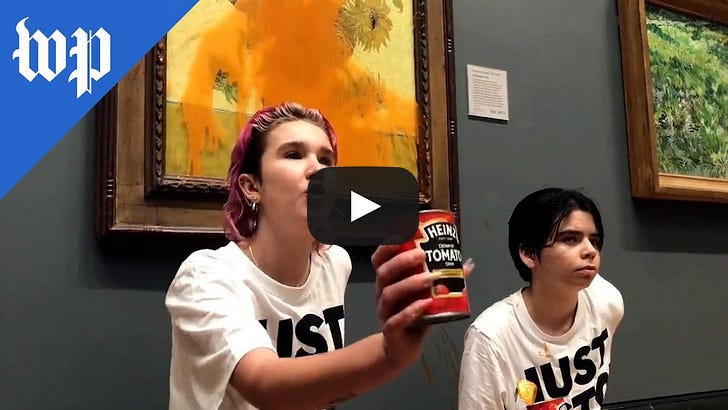
I visited Roger in prison last week, accompanied by one of his old friends, Animal Rising/Rebellion co-founder Dan Kidby. I intended to raise Roger’s spirits by celebrating his recent wins. But I was in for a rude awakening.
“There’s no win! Everything’s fucked!” he said, practically jumping out of his seat. “XR is fucked! JSO is fucked! The world is fucked! And we have to fight every moment to fix that!”
I was confused. “But you won. They announced no new oil and gas…”
“That’s instrumentalist BS that’s going to get us killed! We don’t need people looking at wins! We need people who are going to cross the chasm. You know that concept?”
I didn’t, but Roger explained. Trying to win people over to new ideas is like trying to cross a massive chasm. The first few people who jump into the chasm are bound to fail – and perhaps suffer in the process. But if enough people jump despite their inevitable failure, they can spark a mass movement that allows the group as a whole to succeed. A grisly metaphor came to mind: people leaping to their deaths and piling up in the chasm, allowing the group to get to the other side by crawling across a bridge of human bodies. Roger didn’t shy away from that imagery.
“In every successful social movement, people have died. Do you think we’re going to be any different?”
Roger’s intense stare felt like a challenge. Dan has a child on the way. I just got married to the love of my life. Neither of us is interested in dying.
But thankfully, Roger wasn’t asking us to die. His point, rather, was that an intense commitment to act, even in the face of the worst possible outcomes, is crucial to crossing the chasm. You can’t convince early movers to take the leap if you are focused solely on outcomes because early movers won’t achieve any significant outcomes — and, often, they’ll bear great personal suffering. Gandhi was an early mover and was put in prison for 6 years. Martin Luther King Jr. was an early mover, and he was arrested 29 times then killed. But both had a spiritual commitment to taking action, outcomes be damned. If a movement tries to inspire early movers only by saying their actions will lead to great outcomes, it will fail. This focus on outcomes is what Roger calls the instrumentalist mentality, and when a movement is dominated by instrumentalism, it becomes nearly impossible to convince early movers to act.
Instead, you have to inspire early movers that taking the leap is the right thing to do regardless of outcomes. Moral philosophers call this virtue ethics, i.e., the idea that the right thing to do is what is virtuous – e.g., heroic, generous, kind– rather than what causes the best outcome. And Roger was pointing out one of the great ironies of collective action: sometimes, focusing on virtue, rather than outcomes, allows you to achieve better outcomes. Early movers who are too instrumentalist can’t understand the point of jumping into a chasm — they’re just going to suffer for no reason — and so, if we are all instrumentalists, no one acts. But people motivated by virtue ethics don’t need the outcomes to motivate them. They just want to do the virtuous thing — to be brave, generous, or kind — no matter the cost. And if you can find enough of these virtuous people, then great outcomes that seem impossible can suddenly become inevitable.
Roger’s words were a challenge. As a leader, I am fiercely focused on outcomes. When a team member tells me a potential action is brave or beautiful, I push back and ask for evidence that the action is going to achieve a great result. “Show me the numbers,” my team often hears me say. But what if this focus on numbers blinds us to the power of virtue? Sometimes, as Roger reminded me, we should do things because they are brave or beautiful and not just because they have an immediate impact.
These words were especially powerful coming from Roger, given his personal situation. I have heard through close friends that prison has not been kind to him, and I saw this reality firsthand. His walk was more shuffle than trot. He slowly rolled up his sleeves to read the notes he scribbled on his arm prior to our meeting. And despite his insistence that prison has been revelatory, there were times that he looked blankly into the distance as if something was fraying in his spirit or mind.
But piercing through Roger’s suffering was virtue: the indomitable courage to fight for the world and its living creatures – consequences be damned. There’s something to learn from that for everyone interested in creating change.
What’s up this week?
Let’s get Roger Hallam out of prison. Earlier this month, Roger was denied release from prison, despite a court order that his five-year sentence was unlawful and excessive. The refusal to release him was justified by saying there was “media interest” in his case which would make him a threat to reoffend. His support team is asking for everyone to write to Governor Kevin Clark in Norfolk, UK and ask for Roger to be freed. You can find instructions on how to write to the Governor here. If you’re interested in joining a letter writing party, let me know, and I might schedule one for Sunday!
I joined Animal Activism Collective for a conversation about movement solidarity, grassroots activism, and more on Monday. We also debriefed the recent summit in DC. Check out the video, and give AAC some love.
I was on the Investigate Earth Podcast earlier this month to discuss the latest in the Ridglan case. There’s so much more to share about this case, including the breaking news that the company is suing Dane4Dogs, our local partner groups. Stay tuned for more.
Expect more writing soon! My goal is to publish at least two newsletters a week and update the site much more frequently with short notes.
That’s all for now!
Thank you for reading The Simple Heart! To help us reach more people, become a donor today.
